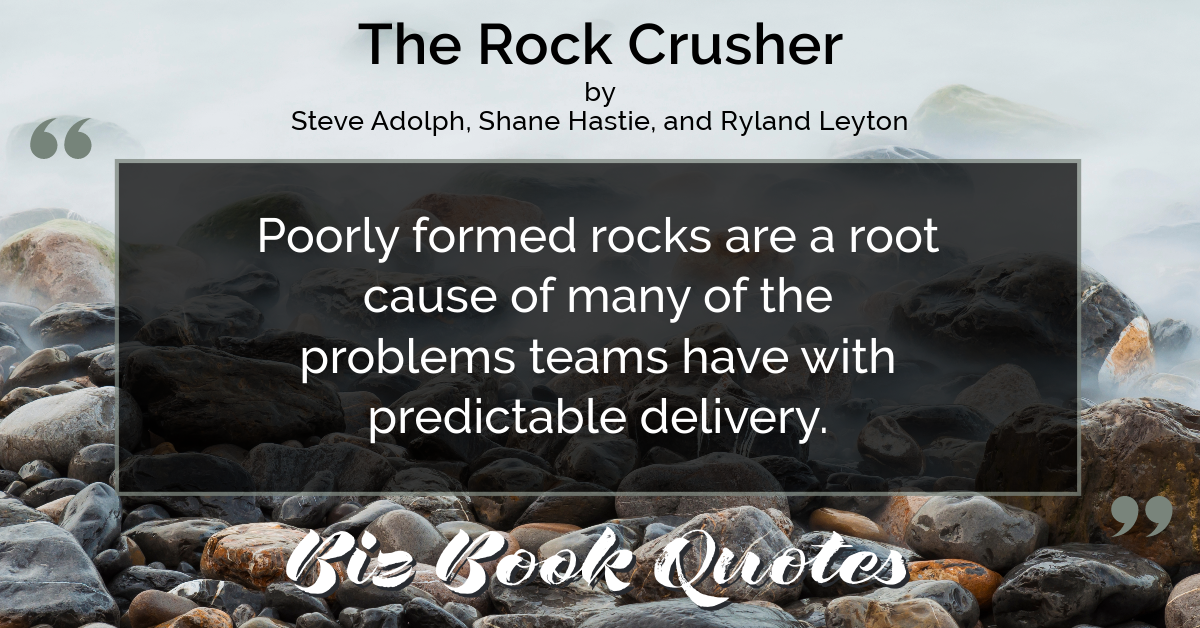|

|
The Rock Crusher:
Pulling poorly formed rocks through the thin pipe – that is, rocks that are not ready – will quickly clog the pipe and ruin predictable delivery of value.
|
109 |
|

|
The Rock Crusher:
Poorly formed rocks are a root cause of many of the problems teams have with predictable delivery.
|
109 |
|

|
The Rock Crusher:
Whether this rock is well formed or not depends on the team’s tacit knowledge.
|
109 |
|

|
The Rock Crusher:
Although we may want to believe that more precise learning is better, we must account for how long that learning will take and what it will cost.
|
128 |
|

|
The Rock Crusher:
Great precision always comes with a cost of greater time and effort.
|
128 |
|

|
The Rock Crusher:
Although we always want to learn from the outcomes of actual construction, when there are better, faster, and cheaper ways of gaining that knowledge we should typically use them.
|
133 |
|

|
The Rock Crusher:
Balancing between appropriate advance learning and ideation and the risk of falling into ‘analysis paralysis’ comes from experience and skill.
|
133 |
|

|
The Rock Crusher:
…if we honestly believe in Lean and Agile economics, then we need to manage flow rather than utilization.
|
134 |
|

|
The Rock Crusher:
The intent of backlog refinement is to discover the valuable increments of a large rock by breaking it down by value – finding the gems.
|
139 |
|

|
The Rock Crusher:
Agile fiction and coding-centric thinking makes us believe that an omniscient product owner magically conjures well-forced, right-sized rocks for a team.
|
141 |











